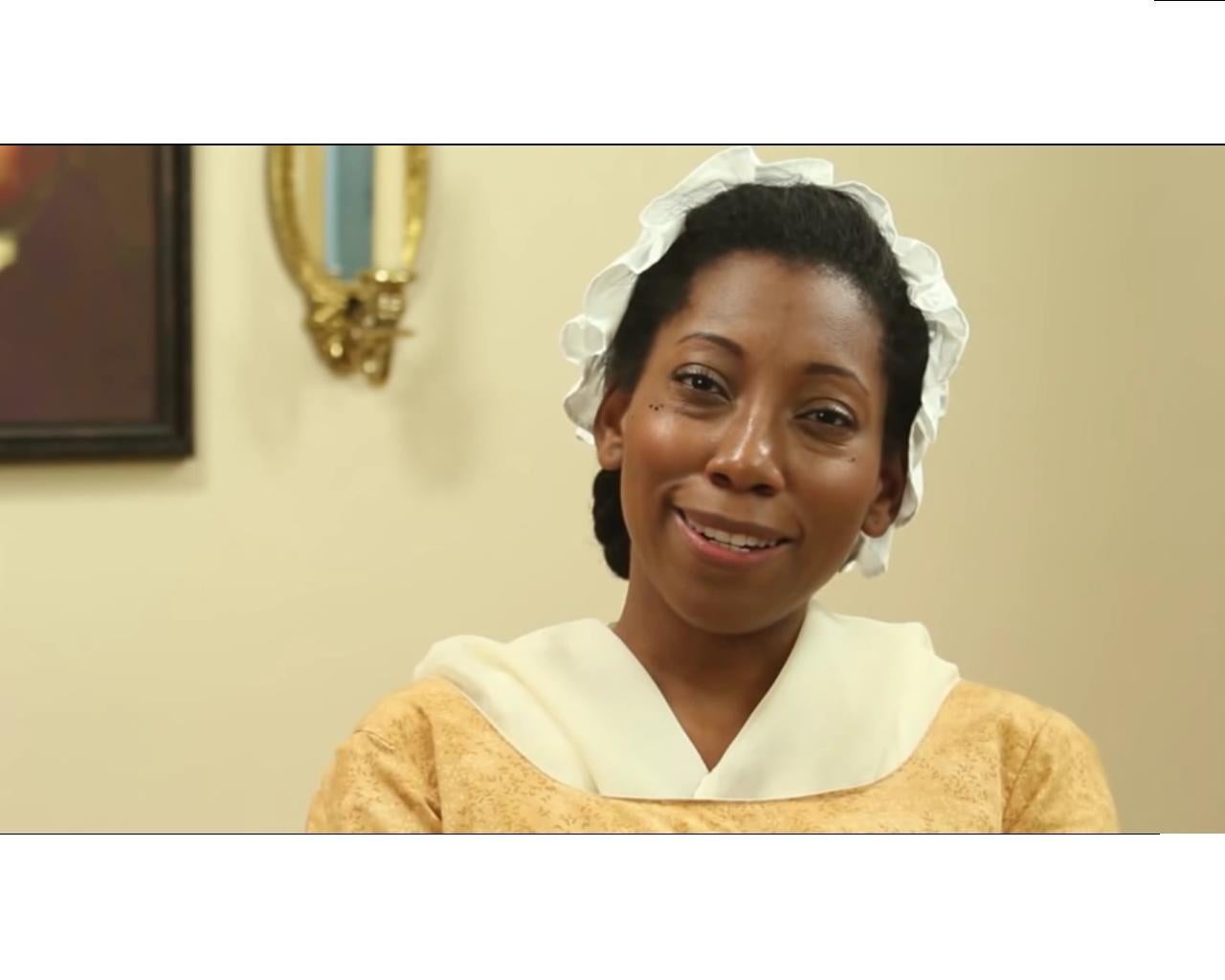Ask A Slave, a biting, satirical Web series in which one of George Washington’s house maids, Lizzie Mae, answers the burning questions of visitors to Mount Vernon, caught on quickly, and for good reason. The series is based on the real experiences of the show’s creator and star Azie Mira Dungey, who used to portray a slave at the historic Washington estate. The ridiculous questions Lizzie Mae is asked by predominantly white visitors will amuse and appall you at the same time. “How did you get to be house maid for such a distinguished founding father?” one clueless old man from Indiana asks in the first episode. “Did you see the advertisement in the newspaper?”
These inane questions—and Lizzie Mae’s droll, undercutting responses—allow a reasonably self-aware and informed viewer to shake his head at the naiveté exhibited by a certain section of the populace. But Ask A Slave raises its own, more important questions in the process. For one thing: Are historical reenactments, as well-intentioned as they may be, actually useful tools for learning, or are they merely a way for visitors to entertain nostalgic and sometimes racist fantasies at the expense of the actors?
In practice, the answer seems to be a bit of both. A Washington Post article from earlier this year covered Colonial Williamsburg’s difficulty in finding black performers willing to play out the daily routines of slave life: At that historic site’s theatrical division, black actors are taught how to perform subservience to the white actors playing their masters—a role that the supervisor, Stephen Seals, says is “not for everyone” due to the psychological strains of the job. One actor on staff recalled a white boy’s demands that he bring him a soda, after learning that he was a “slave.”
I spoke to Dungey by phone earlier this week. Peforming at Mount Vernon isn’t quite the same gig as Colonial Williamsburg, she told me, where performers are available to answer any questions they are asked but aren’t required to be constantly “in character.” Even so, some of her stories at the estate do echo those of the Williamsburg troupe. One visitor, an older white man, told her to bring him some biscuits, insisting that he was a friend of George Washington’s. Dungey informed him that he couldn’t possibly be a friend of the president, as she greeted visitors to the estate and did not know who this man was. Dumbfounded by her failure to play his game, the man wondered why she was picking on him. A lot of white visitors “associate themselves with wealth and glory,” she tells me, but don’t realize that in Washington’s time, they’d likely be classified as “poor whites” (this particular man was Swedish and from Florida), only a couple notches above black slaves, socially speaking.
Though she sometimes felt bombarded by racism and ignorance, Dungey mostly took it in stride, deciding that the best way to educate visitors was to “prod” them to their own conclusions. The Ask A Slave segment where a woman worries about who fetches “Mary” Washington’s late-night cup of tea, when the slaves are sleeping, happened pretty much “word for word,” Dungey says (except for the last part, where Lizzie Mae suggests the lady come work at the plantation herself).
Dungey began to distinguish between lost causes and those who were really willing to learn, a useful skill for educational theater. But some forms of educational theater are easier to implement than others. Dungey also worked in the Smithsonian’s National Museum of American History on Join the Student Sit-Ins, an interactive theater program that encouraged audience members to participate in staged sit-in meetings, which civil rights activists used to prepare for the real thing. She has positive memories from that gig. One white man in attendance admitted to her, crying, that he had been one of the people who harassed sit-in protesters, and while he had since felt horrible about it, this performance had finally shown him the true nature of his actions.
Dungey has now moved to California in hopes of doing more film and TV roles—especially those that are contemporary rather than steeped in the past. Ask A Slave, she admits on the site, isn’t going to answer every question it inevitably raises, but it may at least bring awareness to some who remain in the dark about our past—and our present.
